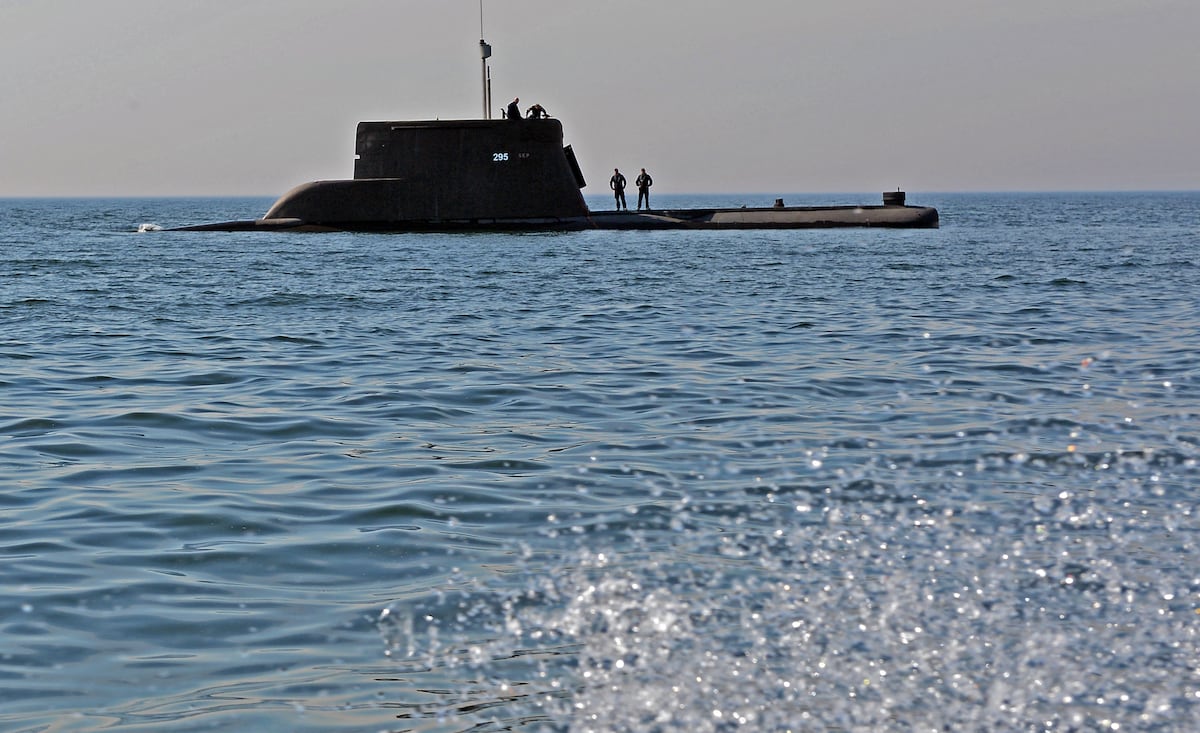



WARSAW, Poland — U.K. company Babcock International, Sweden’s Saab and Italian Fincantieri have signed deals to boost cooperation with Polish state-run defense group PGZ.
The developments come as Poland’s Ministry of National Defence is accelerating efforts to select new submarines that will expand its capacities in the Baltic Sea’s shallow waters, a program all three companies have shown interest in.
The European players inked cooperation agreements with PGZ on the first day of this year’s MSPO defense industry show in Kielce, Poland, which runs Sept. 2-5.
Władysław Kosiniak-Kamysz, Poland’s deputy prime minister and defense minister, has said Warsaw plans to order between three and four new submarines for the naval forces by the end of 2025.
The planned procurement, which is to be implemented under the Orka (Orca) program, is urgent as the Navy relies on a single outdated Soviet-designed submarine, the Kilo-class ORP Orzel.
Meanwhile, PGZ’s central role in the Polish defense industry makes it an attractive partner for foreign players competing for what could be the largest naval program in Poland’s history.
Pierroberto Folgiero, the CEO and managing director of Fincantieri, said his company aims to contribute to Poland’s “ambitious naval modernization plans.”
“With a legacy of more than 180 submarines built and a proven track record in advanced naval platforms, we bring unparalleled expertise to support the Orka program and to develop a long-term industrial cooperation with PGZ and the national defense industry,” according to Folgiero.
Babcock and PGZ already cooperate on a major naval project, and the U.K. group hopes to expand it to Orka. Under the Miecznik (Swordfish) program, PGZ is leading a consortium to build three frigates based on the design of Babcock’s Arrowhead 140 vessel. Deliveries of the vessels to the country’s Navy are scheduled for the years 2026 to 2032.
“The UK and Poland has longstanding close ties, and this growing industrial partnership with PGZ SA will deepen our relationship and accelerate our support for the Polish armed forces, alongside our joint global ambitions across air and marine domains,” said David Lockwood, the CEO of Babcock. “The Miecznik program is a great example of the benefits our relationship is already delivering.”
Micael Johansson, the president and CEO of Saab, said in a statement there “is great potential for expanding the existing partnership between our nations to ensure security and stability in Europe, including the Baltic Sea region.”
Sweden’s efforts were bolstered on Sept. 2 by the signing of a Polish-Swedish defense cooperation agreement following an official meeting between Kosiniak-Kamysz and his counterpart, Pål Jonson, at the MSPO show.
Poland’s centrist government is under increasing political pressure to carry out the submarine purchase. On Aug. 15, Polish President Karol Nawrocki, who represents the opposition party, said during the Armed Forces Day parade in Warsaw “we must implement the Orka program.”
“This is because, as sailors have told me, we need to have Polish submarines, and sailors have waited for them for years, for decades. This is the direction in which we must move forward,” Nawrocki said.
Numerous countries are competing to secure the potential order from Poland. In 2023, Warsaw announced 11 entities took part in a market consultation. Known competitors include Babcock, Fincantieri and Saab, as well as France’s Naval Group, German ThyssenKrupp Marine Systems, Spain’s Navantia, South Korea’s Hanwha Ocean and Hyundai.
In May 2025, a spokesperson for the Polish ministry told Defense News its experts assigned the highest scores to the offers placed by Germany, Italy and Sweden. However, while these three offers received the highest scores from the Polish Armaments Agency, the military’s procurement arm, the remaining submarine offers have not been discarded amid ongoing talks with foreign governments, according to the spokesperson.
In the aftermath of Russia’s invasion of Ukraine in 2022, Poland has established itself as one of the alliance’s top spenders. For 2025, Warsaw plans to allocate a total of PLN 186.6 billion ($51 billion) to its armed forces. This would enable the nation’s military expenditure to reach an estimated 4.7% of its gross domestic product this year.
Jaroslaw Adamowski is the Poland correspondent for Defense News.
